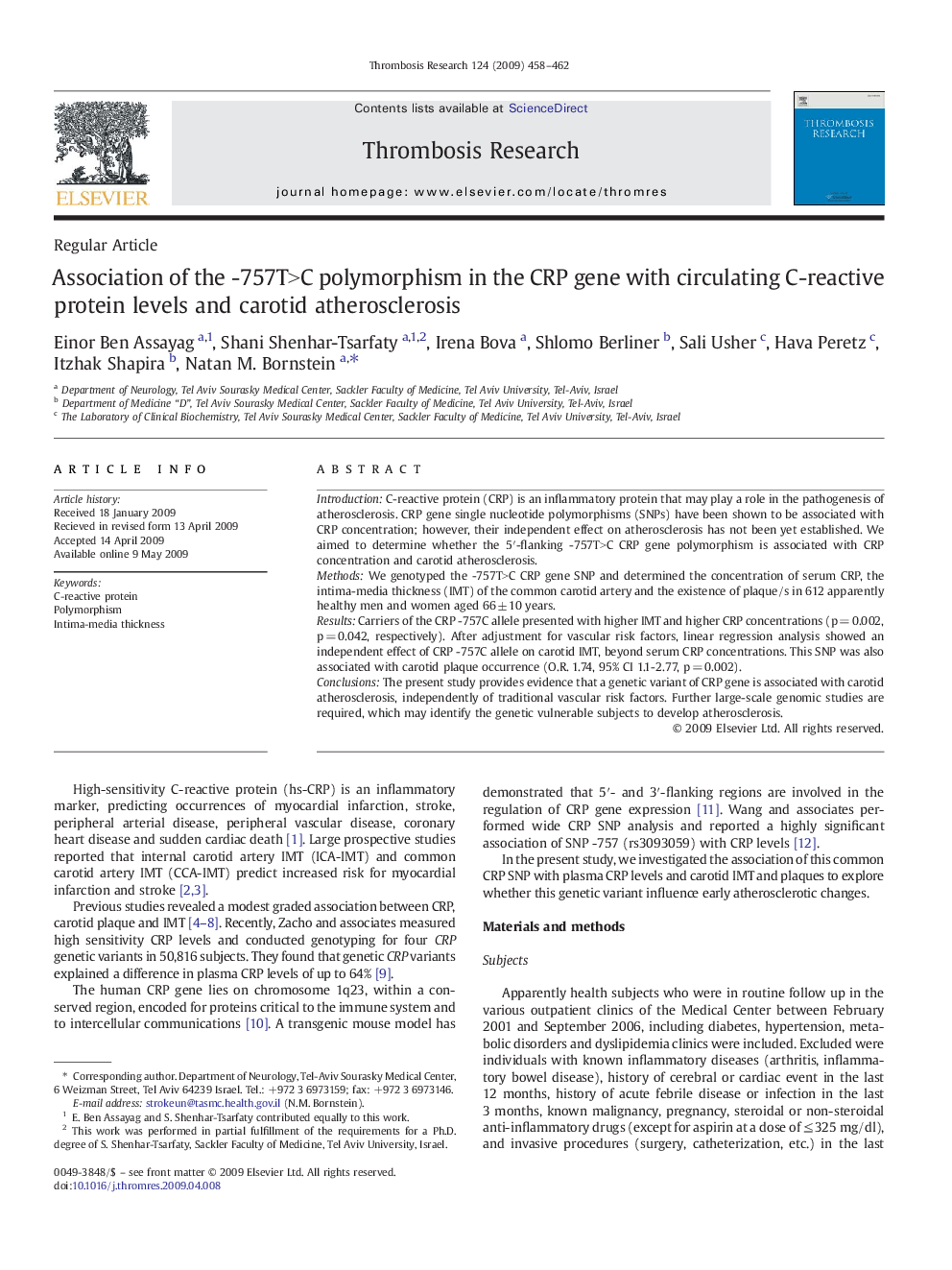| Article ID | Journal | Published Year | Pages | File Type |
|---|---|---|---|---|
| 3029594 | Thrombosis Research | 2009 | 5 Pages |
IntroductionC-reactive protein (CRP) is an inflammatory protein that may play a role in the pathogenesis of atherosclerosis. CRP gene single nucleotide polymorphisms (SNPs) have been shown to be associated with CRP concentration; however, their independent effect on atherosclerosis has not been yet established. We aimed to determine whether the 5′-flanking -757T>C CRP gene polymorphism is associated with CRP concentration and carotid atherosclerosis.MethodsWe genotyped the -757T>C CRP gene SNP and determined the concentration of serum CRP, the intima-media thickness (IMT) of the common carotid artery and the existence of plaque/s in 612 apparently healthy men and women aged 66 ± 10 years.ResultsCarriers of the CRP -757C allele presented with higher IMT and higher CRP concentrations (p = 0.002, p = 0.042, respectively). After adjustment for vascular risk factors, linear regression analysis showed an independent effect of CRP -757C allele on carotid IMT, beyond serum CRP concentrations. This SNP was also associated with carotid plaque occurrence (O.R. 1.74, 95% CI 1.1-2.77, p = 0.002).ConclusionsThe present study provides evidence that a genetic variant of CRP gene is associated with carotid atherosclerosis, independently of traditional vascular risk factors. Further large-scale genomic studies are required, which may identify the genetic vulnerable subjects to develop atherosclerosis.
